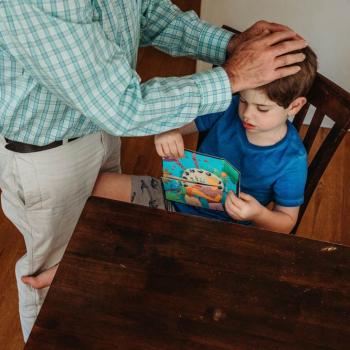Of course, anxiety is not sinful, but saying that is little comfort to Christians who suffer with anxiety and feel that, somehow, they are letting God down by feeling the way they do. If you, or someone you love, is struggling with persistent worry or anxiety, I hope you will find this article I wrote for the latest issue of America magazine a source of comfort and strength.
Here is a sample of what you’ll find….
We are not to blame for our anxiety. But if we can, we must cultivate our ability to respond to our initial emotional reactions in thoughtful, graceful and productive ways that work for our good, facilitate godly relations with others and empower us to build God’s kingdom. This is exactly the skill that mindfulness-based approaches to anxiety treatment teach even to clients suffering from severe anxiety, although people who experience more common levels of stress and worry can also benefit from this approach.
That said, doing this often requires people to both make a mental shift about how they think about their feelings and learn new skills to deal with them. Many people experience their emotions—especially feelings of anxiety—as a tsunami against which resistance is futile. They feel that the best they can do is “manage” the onrushing emotional tide, desperately trying to limit the damage, but research shows we are capable of much more.
Brain scientists sometimes suggest that free will might more accurately be understood as “free won’t.” Although emotions rise up from the unconscious mind before our conscious mind is ever aware they are present, we can train our conscious mind to catch these surges of emotional energy and say, “I won’t react that way. I will respond this way instead.” Learning to take advantage of the tiny gap between our experience and our reaction to that experience is what psychologists call “response flexibility,” and it is the key to learning to modulate our own stress/anxiety response.
In a sense, mindfulness-based practices increase this space that exists between the trigger for our anxiety and our experience of anxiety, allowing us to respond to situations in ways that are healthy and ultimately healing. It takes practice, but the basic capacity to develop this skill is one of every human person’s most basic God-given freedoms. In the words of the psychoanalyst Viktor Frankl, who studied what gave concentration camp survivors the will to live—in some cases, heroically—despite their terrible conditions, “Everything can be taken from a man but one thing: the last of human freedoms—to choose one’s attitude in any given set of circumstances, to choose one’s own way.” Response flexibility is the very heart of free will. READ THE REST.

















